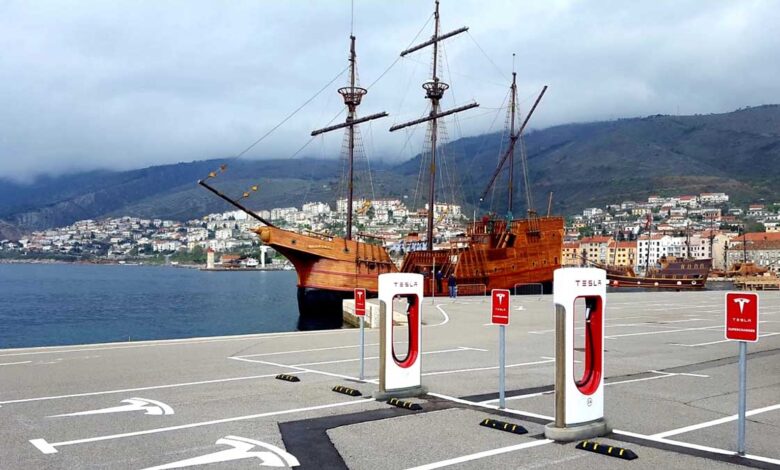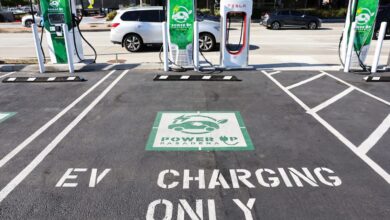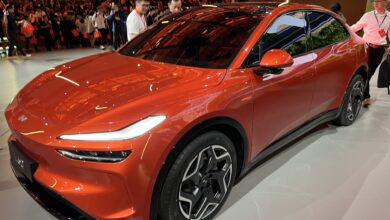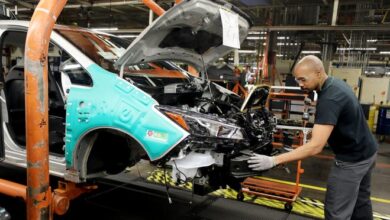Electric vehicle numbers could overtake petrol cars in Norway this year

Norway continues to see an extraordinary pace in EV adoption, with the latest monthly data showing 90 per cent of new car sales are fully electric, and new figures suggesting that the number of battery EVs (BEVs) on Norway’s roads are soon set to overtake petrol cars.
New figures from the Norwegian Public Roads Administration seen by Reuters reveal that BEVs accounted for 24.3% of Norway’s 2.9 million cars as of the middle of March, compared to 26.9% for petrol vehicles.
If this trend continues, which it surely will given the EV share of the new car market, experts predict that the number of BEVs on Norway’s roads will exceed that of petrol vehicles by year’s end, or early in 2025 – the year in which Norway will officially end the sale of new petrol and diesel cars.
“Given that sales of pure-petrol cars are negligible now, this time next year there will be more BEVs on the road than pure-petrol cars, and probably before the end of this year,” Robbie Andrew, a senior researcher at climate change think-thank Cicero, told Reuters.
About 10,000 new vehicles are sold in Norway each month and in March the share of full battery EVs was 89.3 per cent, with plug in hybrids another 2.2 per cent. Another 5.7 per cent were mild hybrid vehicles.
For overall fleet numbers, diesel vehicles retain the biggest share, but Andrew said he believes that BEVs will also overtake the number of diesel cars on Norway’s roads in the next three to four years.
Norway’s world-leading adoption of EVs has been driven by pro-EV policies dating back to the early 90s, and became the first country in the world in 2016 to set an end date for the sale of ICE passenger and commercial vehicles.
Norway has offered generous incentives for those looking to buy an EV, including exempting BEVs from taxes otherwise imposed on ICE vehicles, as well as investing in public charging infrastructure.
This near-universal political support for electric vehicles has resulted in plummeting new vehicle emissions, which sunk to just 15g/km in May of 2023. For comparison, the average new vehicle emissions in Australia in 2022 was 11 times higher 164g/km.
The other economic benefits across the spectrum – from public health to noise pollution and reduced fuel and maintenance costs – speak volumes about the value in political support for an electrified transition.
Joshua S. Hill is a Melbourne-based journalist who has been writing about climate change, clean technology, and electric vehicles for over 15 years. He has been reporting on electric vehicles and clean technologies for Renew Economy and The Driven since 2012. His preferred mode of transport is his feet.



